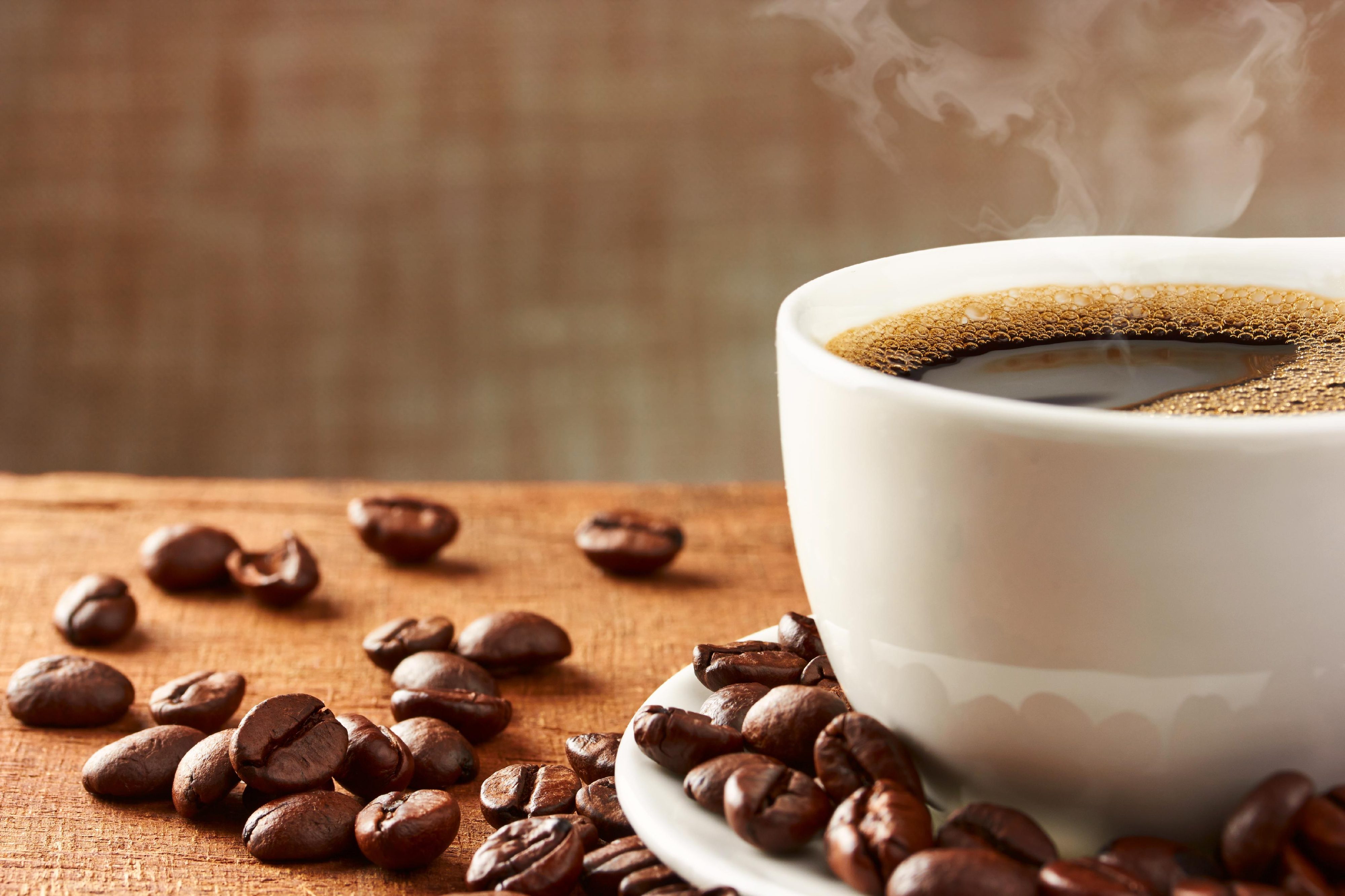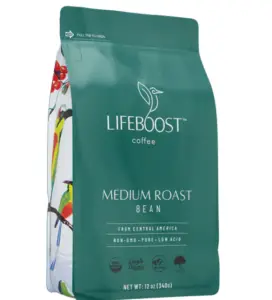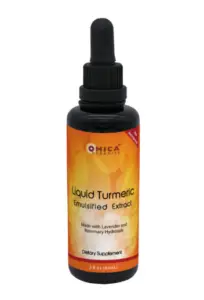Coffee was found to be the most popular beverage in the United States of America according to a 2021 survey by the National Coffee Association, and while it does boast several health benefits, coffee doesn’t come without its drawbacks.
Some people thrive on coffee, while others may experience side effects such as nervousness, insomnia, nausea, and more.
Coffee can also be highly acidic and tough on tooth enamel, a problem that some brands have attempted to mitigate by releasing reduced acid coffees.
Large doses of coffee may also cause anxiety, chest pain, and headaches in some people.
What many coffee drinkers don’t realize is that a lot of these side effects can be mitigated with one simple change, however, in large part because of an effect coffee may have on hydration levels in the body.
Holistic Doctor: Coffee is Dehydrating, Here’s What You Can Do to Counteract The Effects
Dr. James DiNicolantonio is a cardiovascular research scientist at Saint Luke’s Mid America Heart Institute, and the author or co-author of over 200 medical publications.
He also serves as the Associate Editor of the British Medical Journal’s (BMH) Open Heart.
Dr. DiNicolantonio addressed the issue of coffee and dehydration on his YouTube channel recently, during which he shared the results of a study that measured the hydration and electrolyte levels of coffee drinkers.
The video is shown below.
Long story short: Coffee can be dehydrating, and it also may cause a loss of key electrolytes including potassium.
Dr. DiNicolantonio also shares his strategy for staying hydrated while drinking coffee, allowing the drinker to reap the health benefits of coffee while avoiding the downsides.
Other Ways to Make Your Morning Cup Healthier
Like many people I am a big fan of coffee and enjoy drinking it a few times per week at least.
Sometimes I find that it is incredibly healthy for me, other times it seems to wear me down a bit and cause mild iterations of the symptoms of above.
Personally, I consider coffee to be a healthy beverage in moderation, especially when it meets the following criteria:
1. Is Consumed with Plenty of High-Quality Filtered Water- Tap water contains fluoride (the number one cancer causer in the U.S. according to National Cancer Institute research Dr. Dean Burk), glyphosate (the cancer-linked Monsanto chemical) and pesticides. This is the filter I use, it takes out all of the aforementioned toxic substances plus chlorine and more (The company is holding a sale- click here and use code ‘SUMMER’ to receive a discount at checkout if you’d like to try it).
2. Is Tested for Mold- One recent study found that up to 91% of all coffee brands may contain mold. This is how the Bulletproof Coffee craze started (with mold-free coffee). I drink coffee from LifeBoost, an organic coffee tested to be mold-free, mycotoxin-free, and heavy metal free.
3. Is Whole Bean or Fresh-Roasted- While I do drink instant coffee every now and then, I have noticed over the years that I feel a lot better after drinking whole bean coffee. Instant coffee may cause health issues in people who are sensitive to gluten, and in my personal experience it seems less healthy overall than fresh-roasted coffee.
I prefer to buy whole bean coffee and to grind it up fresh using a coffee grinder like this one.
Research shows that pre-ground coffee contains more health damaging free radicals than freshly ground, which can contribute to oxidation and inflammation in the body.
Adding an anti-inflammatory spice like organic liquid turmeric (shown below) can help to counteract this, but fresh ground coffee is generally healthier.
4. Contains Healthy Additions- Other healthy additions to coffee include the following:
-Cardamom (this reduces the acidity of coffee and is commonly used in Turkish coffee recipes, learn more here)
-Stevia (a healthy sweetener that doesn’t damage gut health like Splenda, try a unique stevia flavor here and use code ‘althealthworks’ for a discount at checkout)
-Cinnamon (it has benefits for diabetics and anyone looking for improved blood sugar levels, as detailed here)
-Collagen (this is the most abundant type of protein in our bodies and it also helps to stave off cancer cells; you can purchase a two-pound bag of it by clicking on this link). Collagen is abundant in bone broth protein which tastes amazing in a hearty, nourishing cup of heated up bone broth or bone broth coffee first thing in the morning.
Bone broth protein has benefits for gut health, it seals the gut lining allowing you to absorb collagen and protein better. Try a bag or two here (On Sale Now- Here).
-Butter (adding butter to coffee is something practiced by many traditional cultures across the world, as butter adds a form of energy in butaric acid that is energizing and satisfies cravings, as long as it comes from grass-fed cows)
-MCT Oil (this substance derived from coconuts is one of the healthiest brain foods on the market). One of my favorite MCT oil based products is called Brain Octane Oil which contains the most highly-concentrated, energy rich parts of the coconut. It helps to enhance brain function by giving the brain something extra to use for energy instead of glucose, its preferred fuel source.
These are just a few of many ways to make your morning cup of coffee that much healthier, along with drinking more high-quality water, preferably with fluoride taken out of it.
Ideally, the ratio should be at least two cups of water per cup of coffee, each day.
Be sure to consult a naturopathic health practitioner if you have any questions about coffee use and your health. It can make a big difference, especially when it comes to finding the right amount of coffee for your needs, body and lifestyle.
*******
Thanks for installing the Bottom of every post plugin by Corey Salzano. Contact me if you need custom WordPress plugins or website design.







